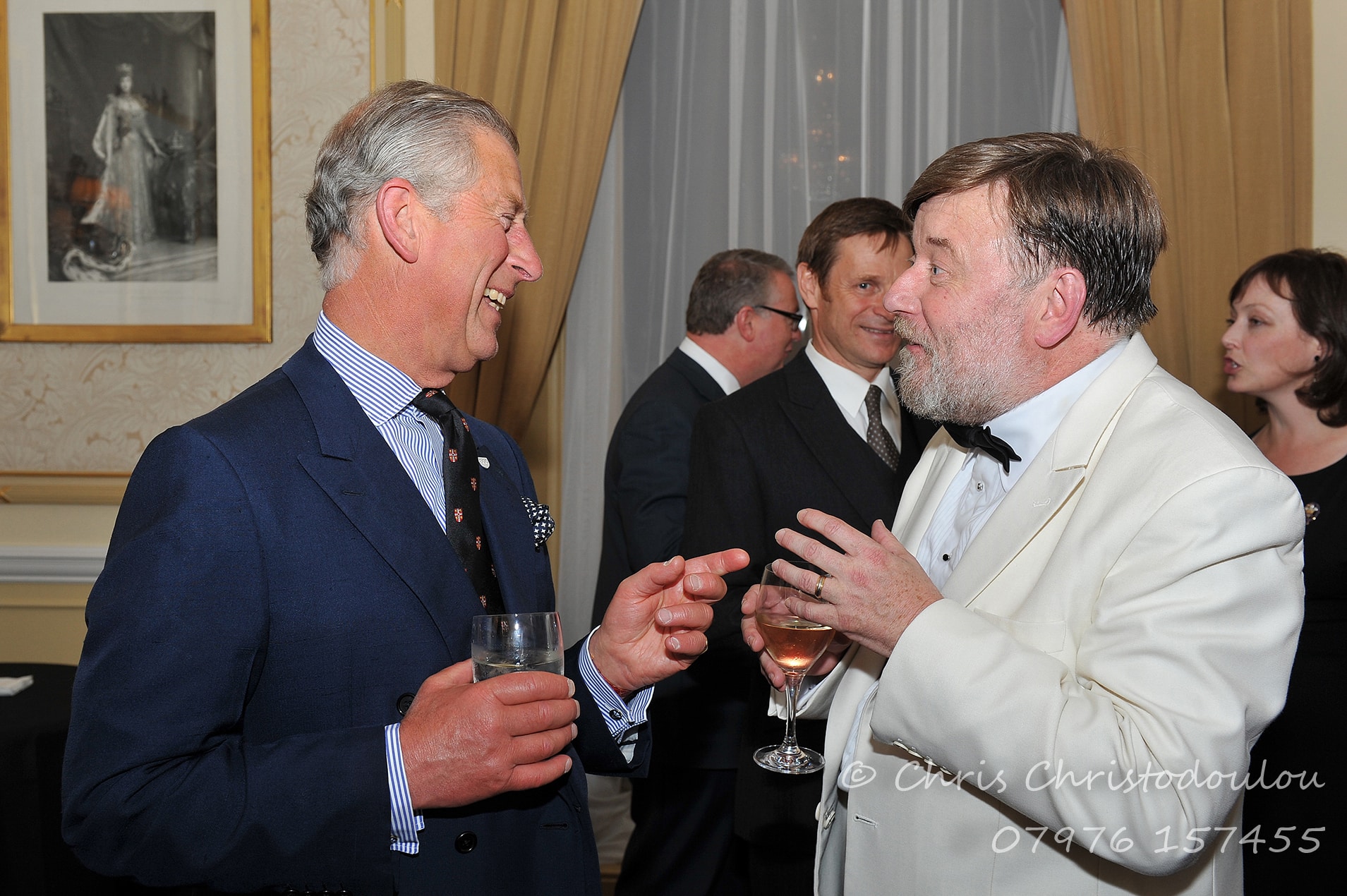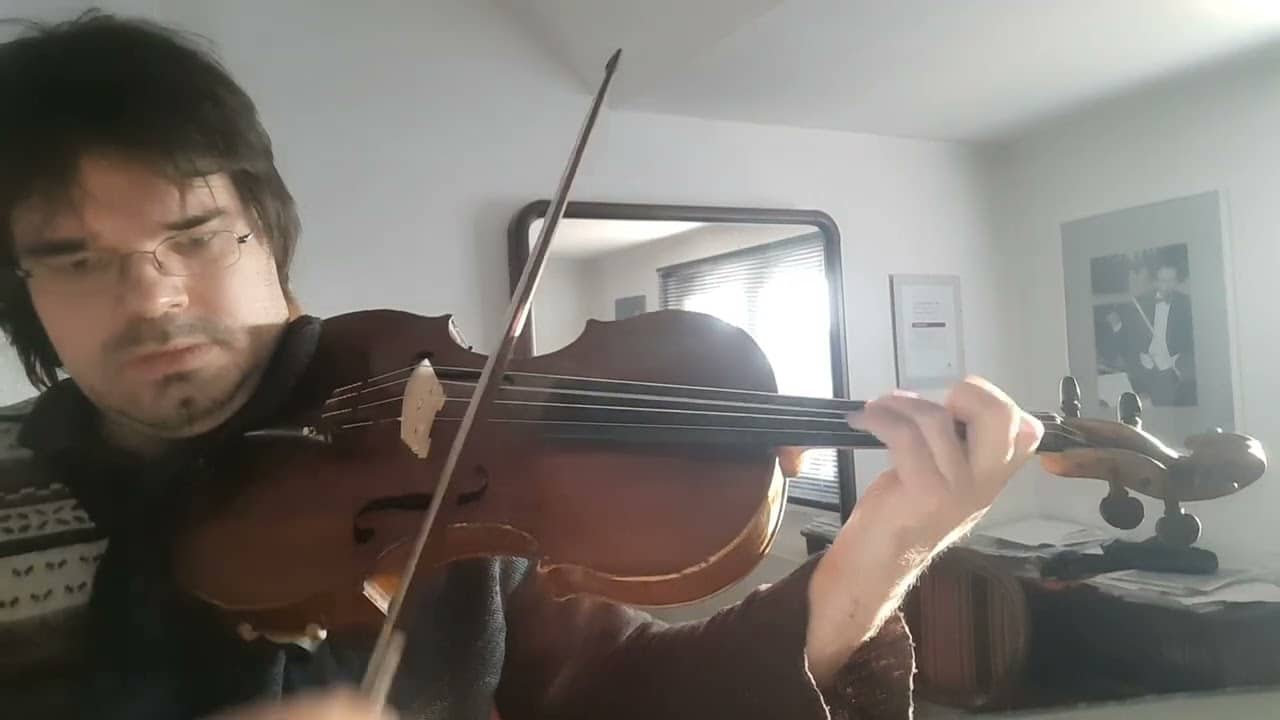Rare documentary footage of a lost Hungarian maestro
NewsFerenc Fricsay was the most gripping conductor working in 1950s Berlin, bar none.
His recordings are enduring mementos of conducting at its best.
I can’t stop rewatching this film.

Ferenc Fricsay was the most gripping conductor working in 1950s Berlin, bar none.
His recordings are enduring mementos of conducting at its best.
I can’t stop rewatching this film.
Statement by the Berlin Phil: It is with…

We hear that Andrew recently recorded for Chandos…

Decca is marking the birth centenary of John…

Don’t say you haven’t dreamed of this. The…

Session expired
Please log in again. The login page will open in a new tab. After logging in you can close it and return to this page.
Genius at work. Wonderful.
One of the best concerts i have ever seen was the
LPO with him conducting. And Geza Anda playing
Bartok
You are a lucky man.
I love the voice of the German introducing this. All white male orchestra; the maestro sounds angry and bitter, not like Kleiber.
I disagree with the assertion that this man was the greatest conductor in Berlin in the 50’s.
The great conductor addresses individual musicians by their names. How common is or was this?
Another amazing video with Fricsay is from a rehearsal of Kodaly’s Dances of Galantha, if memory serves. Does anyone have a link?
I don’t know about the Galanta Dances, but here he conducts Háry János
https://www.ardmediathek.de/video/ard-klassik/kodaly-hary-janos-suite-deutsches-symphonieorchester-berlin-ferenc-fricsay-rbb/ard/Y3JpZDovL3N3ci5kZS9hZXgvbzE0NzE0NjA
Kleiber also knew the names of his musicians and you can see this from the small amount of material available of him in rehearsal.
This video has been available for many years.
It goes to show what a real musician is like rehearsing an orchestra properly not some charlatans like Gergiev or Correntzis.
Celibidache was also fascinating to watch rehearsing as was Mravinski.
Totally agree. Even better is the complete 59 minute SWF Stuttgart broadcast of 1960, which I found a link here:
https://www.youtube.com/watch?v=bky5FHEKZjk
Hopefully one can see this unimpeded.
It was a wonderful series that Stuttgart had, about 45 minutes of rehearsal followed by a 15 minute performance.
There is another one from about the same time with Carlos Kleiber conducting Rosenkavalier.
ORF, BBC and BR would do well to revive such a concept. Conductors that only excel in stick technique and not in score knowledge would be ruthlessly exposed.
Fricsay was a genius, and a seriously ill one by this point.
The pieces Kleiber rehearsed for this series were the overtures to Fledermaus and Der Freischütz. Not Rosenkavalier.
Moreover, Fricsay excelled in understanding orchestral instruments: he grew up learning several different types of them- piano, a bowed string (violin, I think), a woodwind,a brass, percussion…. Also had instruction in composition. His father, also a conductor, raised him to become a conductor. His early death was such a colossal loss.
This great conductor was only in his 40s when he died; surely a huge tragedy.
Too bad they felt they needed to stretch the image to wide-screen, to satisfy…?
Everyone looks squashed.
Fricsay is so great. Even his worst recordings are worth hearing, sure to contain some beautiful tid-bit. And his far-more-numerous great work is sooo great.
https://www.youtube.com/watch?v=NCRNP9Arryk
This has been around for years, I think?
Wonderful, just wonderful
Yes, player you are correct. There is some video of Kleiber doing Rosenkavalier, just not from that series. The Fledermaus is great fun (he hadn’t won over the players in that video, and it is pretty entertaining) and I will have to look for the Freischutz.
Thanks to Novagerio for finding that video of Hary Janos. Fricsay OWNS this piece. Around 14:00 where our “hero” is begging for sympathy is absolutely priceless. No one else comes close here!
This is the Freichütz, but I cannot find a version with English subtitles just now. It is commercially available, of course.
https://www.youtube.com/watch?v=D5WyQnQJNc4
Rare? It’s been on DVD (from Kultur) or at least 10 years, and is about an hour long there.
I had not seen this before. Speaking from the perspective of one who has played in a few orchestras – but never one of this quality — a few things strike me. I try to imagine what it would be like to be playing under, not just watching. First, I like playing under conductors such as this who shout corrections or comments (including approval) but nonetheless keep conducting and the music keeps going. You don’t have to stop for everything — pick your stops. And when he did stop, he tried to get a lot done including covering things that weren’t due to be played for several more minutes, thus conveying that he fully intended to get there, which is welcome.
I was a bit surprised by how, well, “pictorial” some of his language was, the leaping panther, the distance from the river, that sort of thing, with a professional orchestra. It seemed to get real results. This can be overdone, especially if it is clearly not spontaneous but “rehearsed” and thus contrived. He seemed spontaneous, and yes as mentioned by the narrator, that brief statement about it being good to be alive, in the context, is moving.